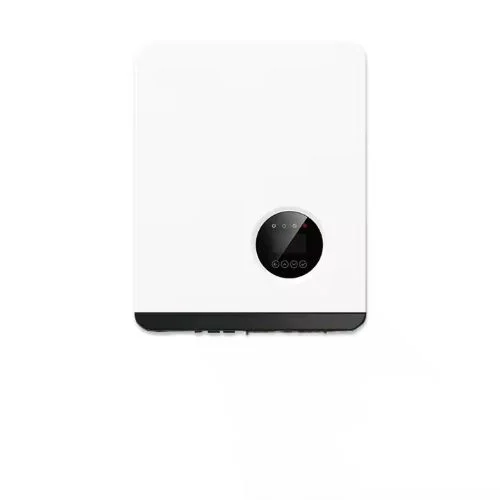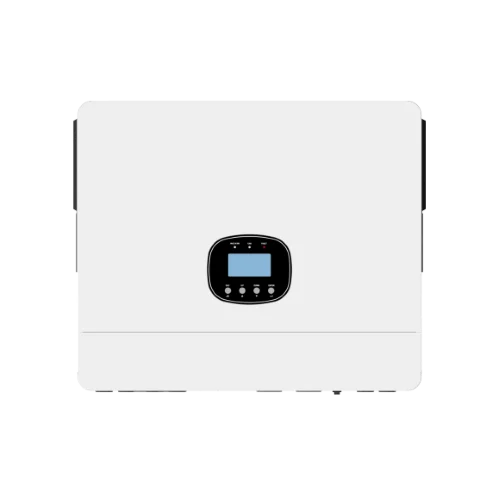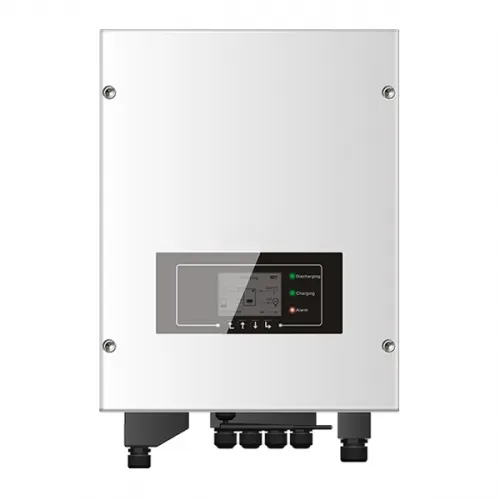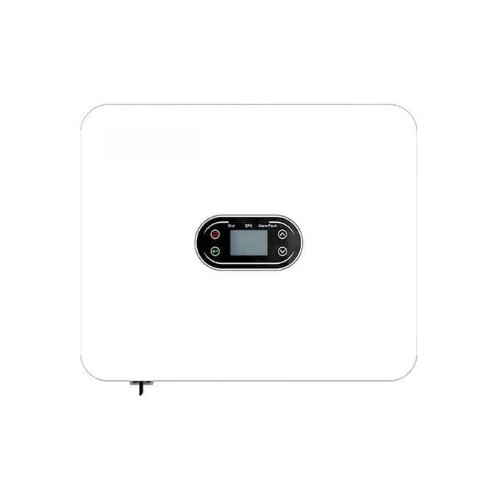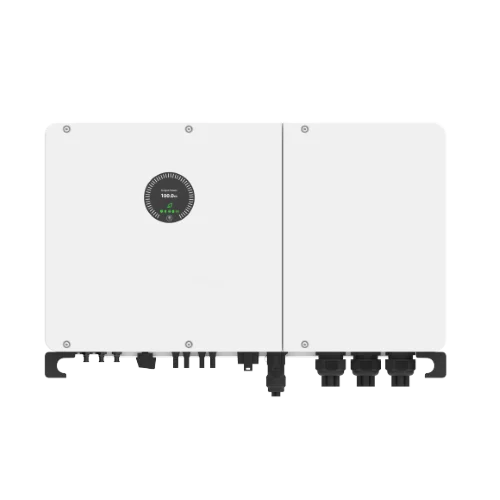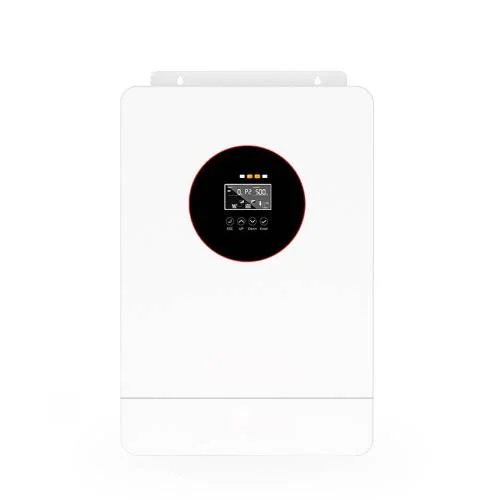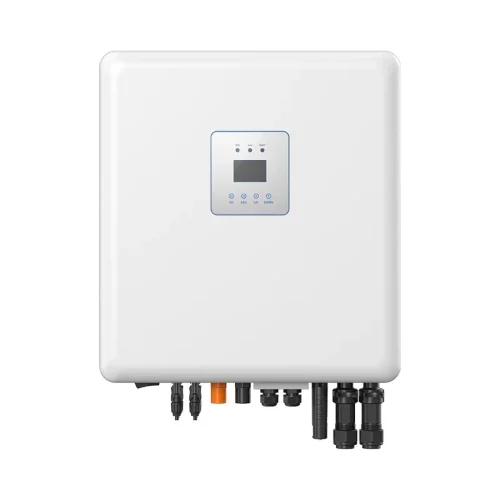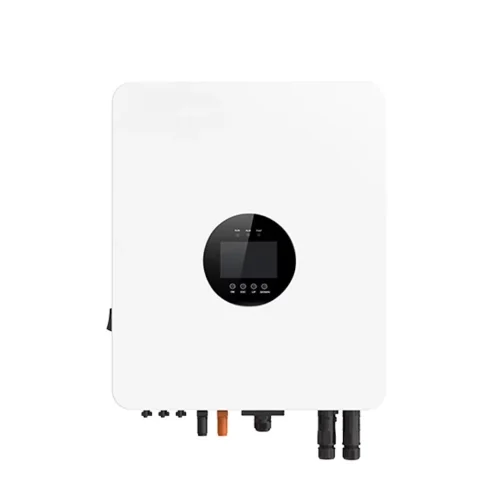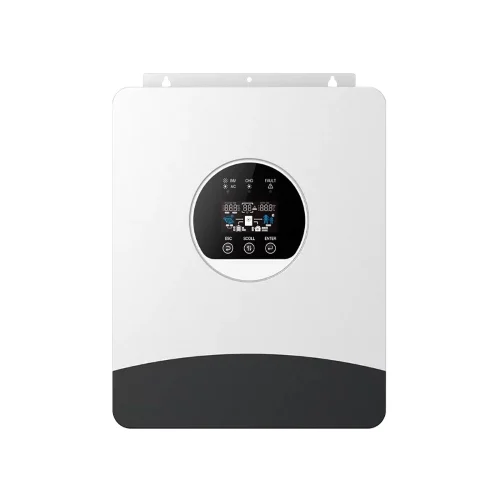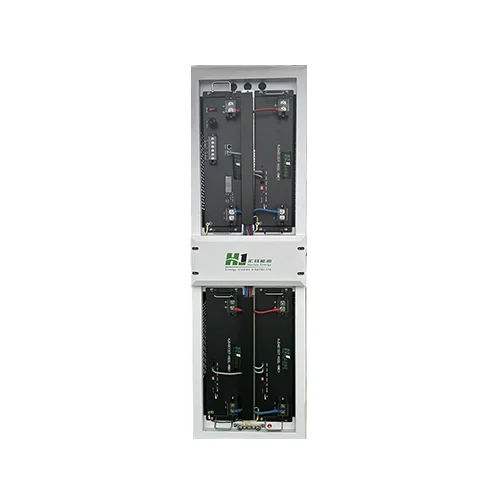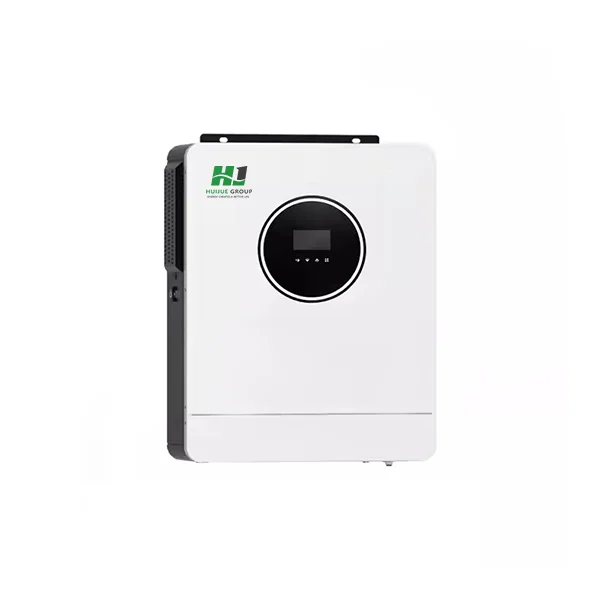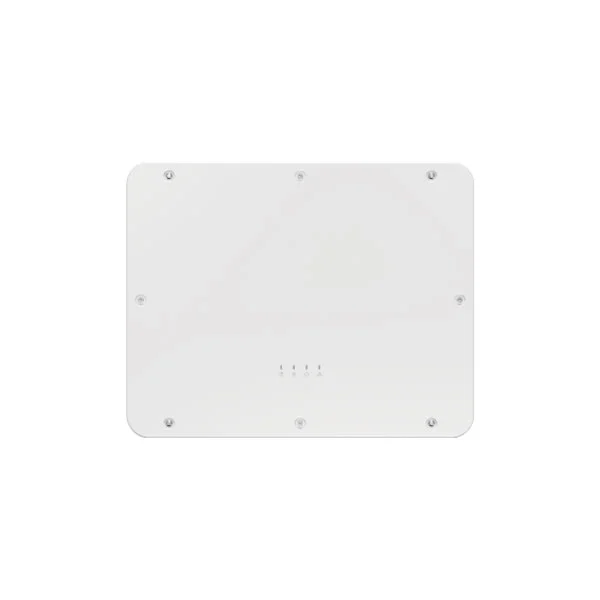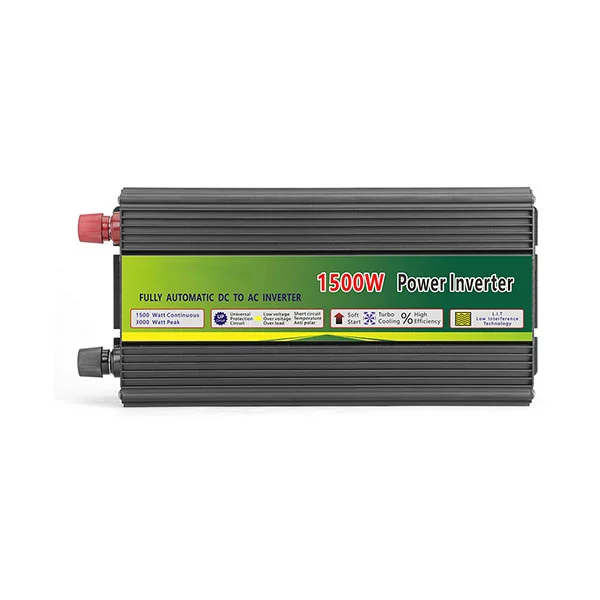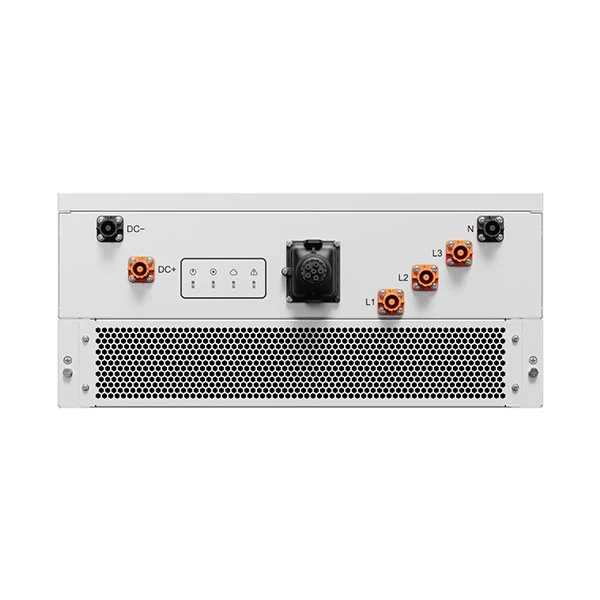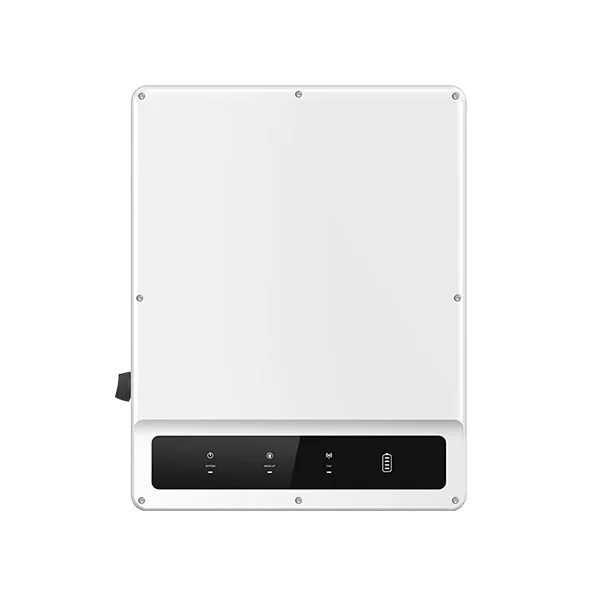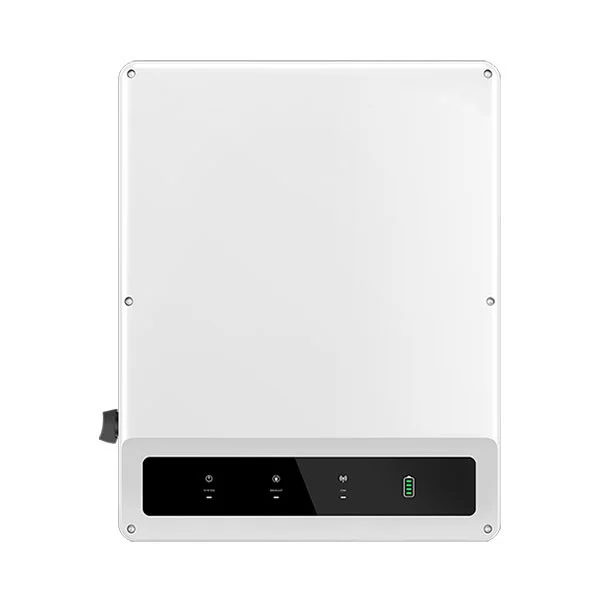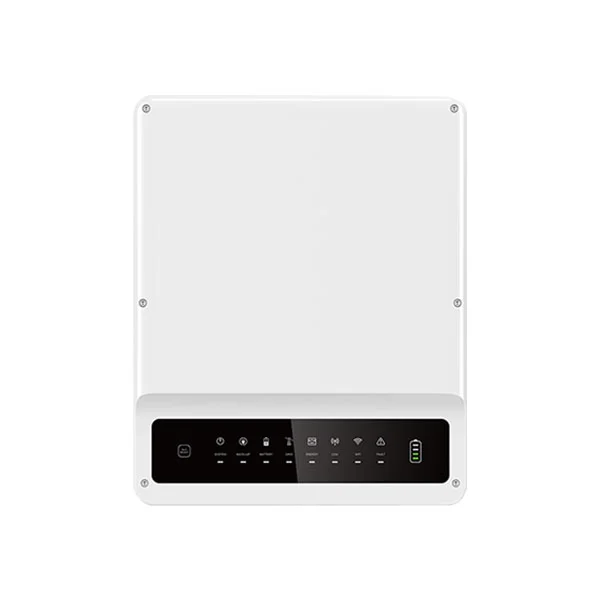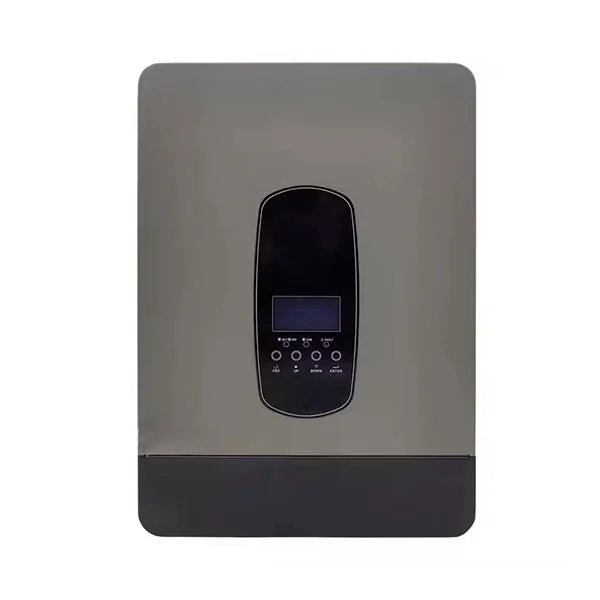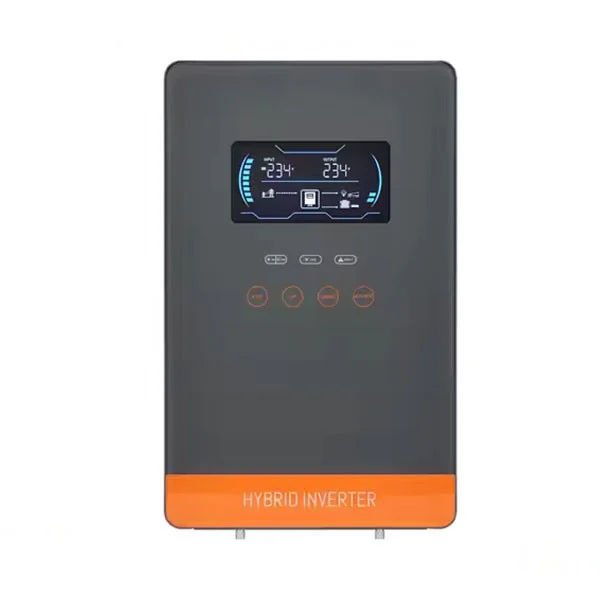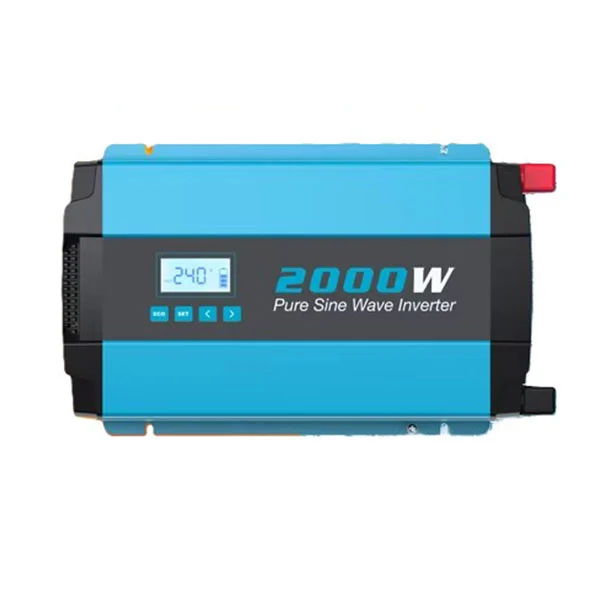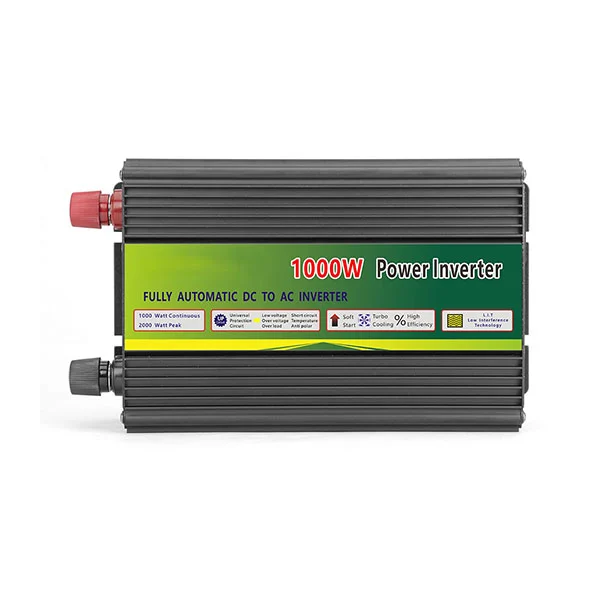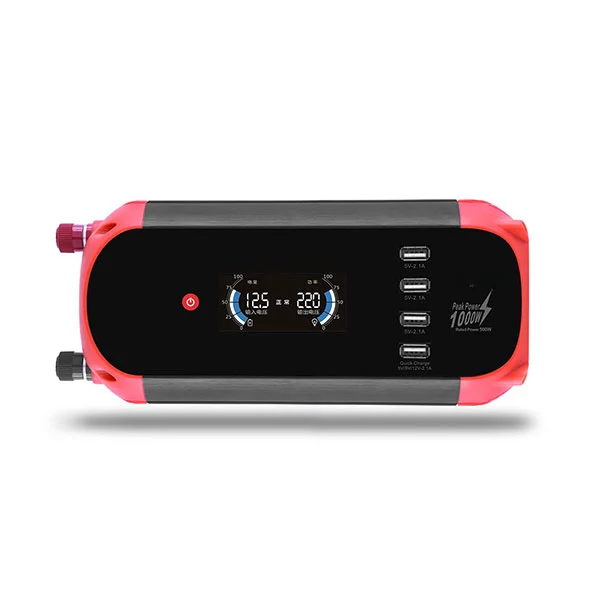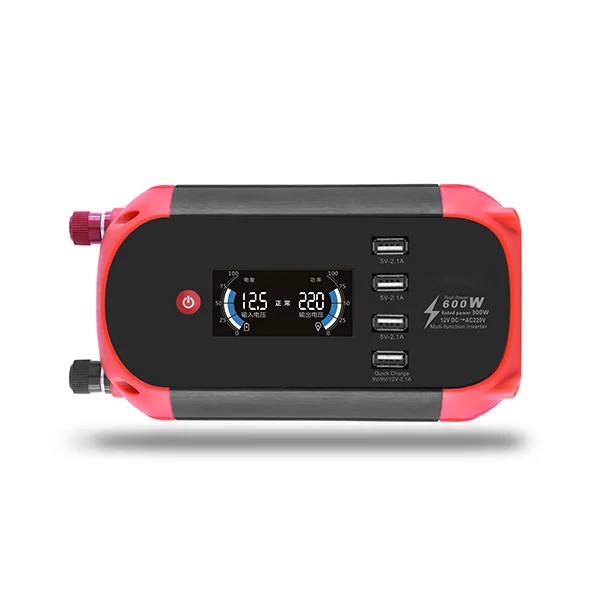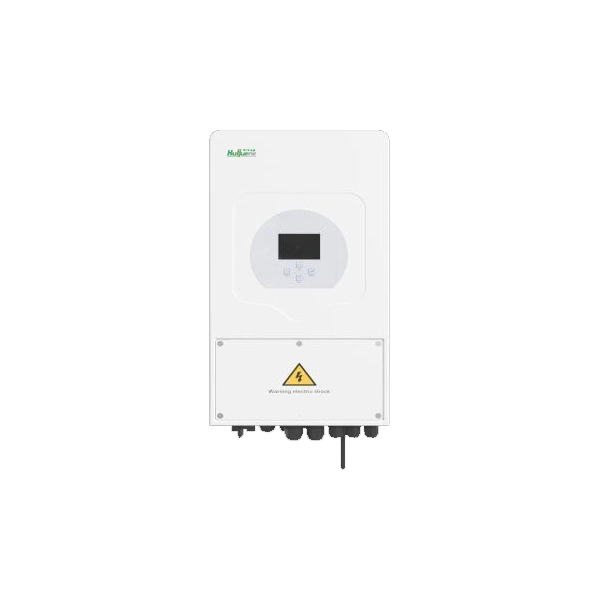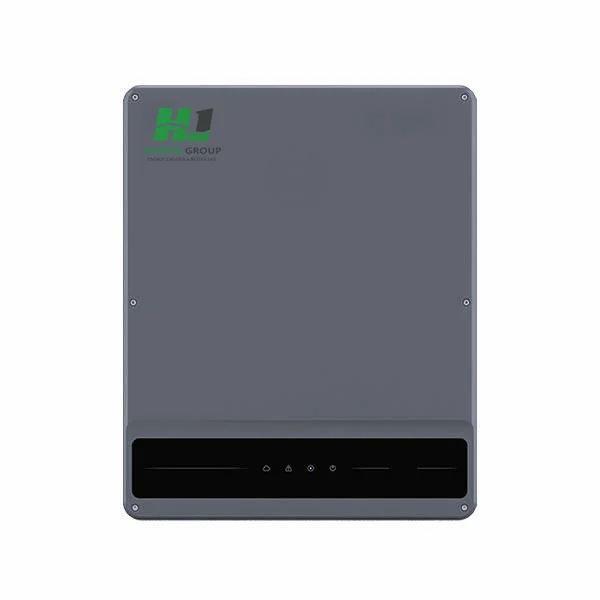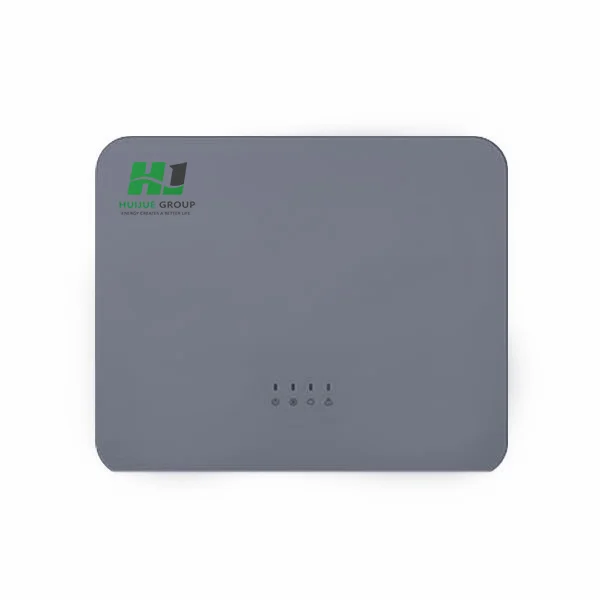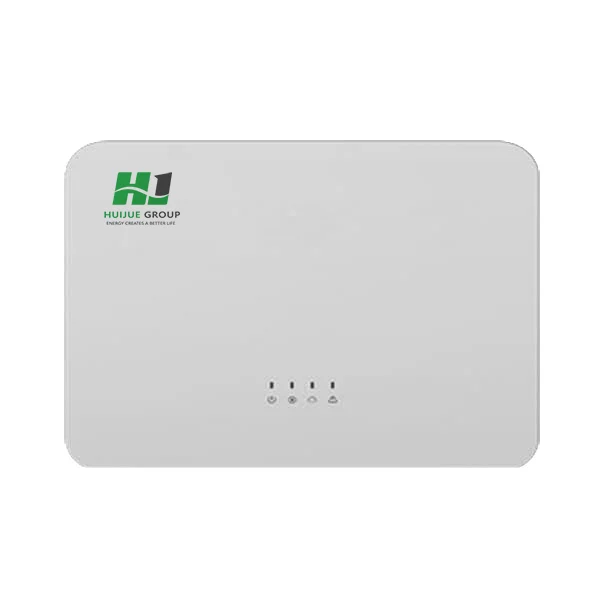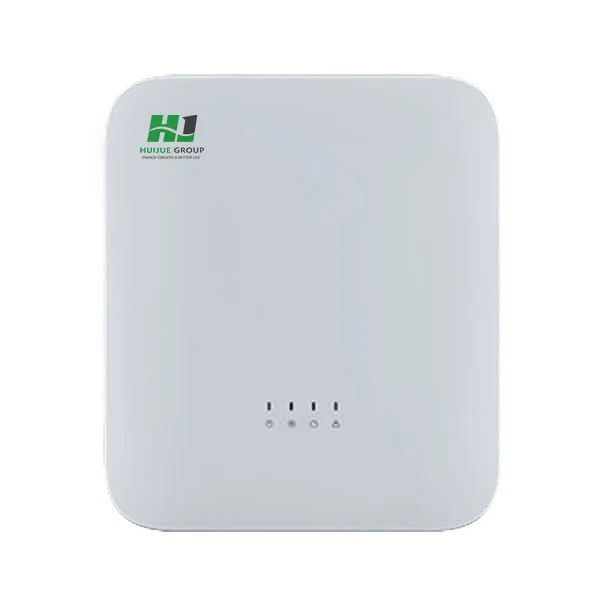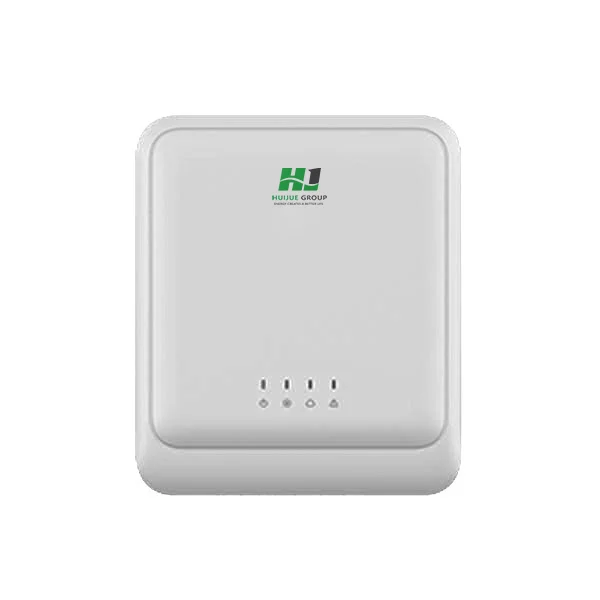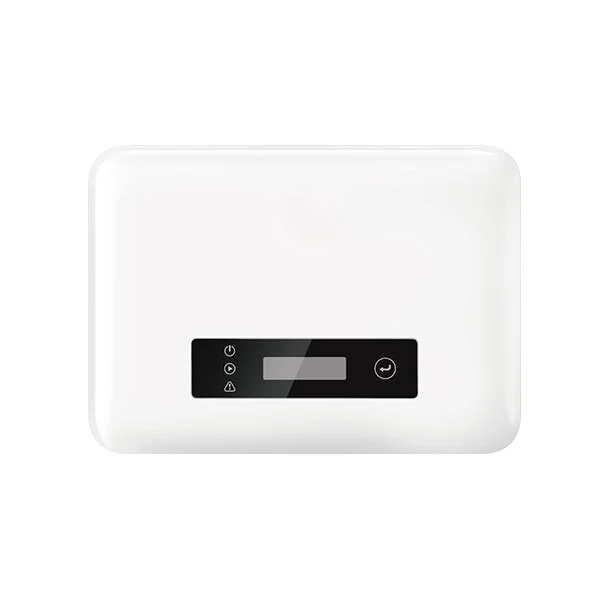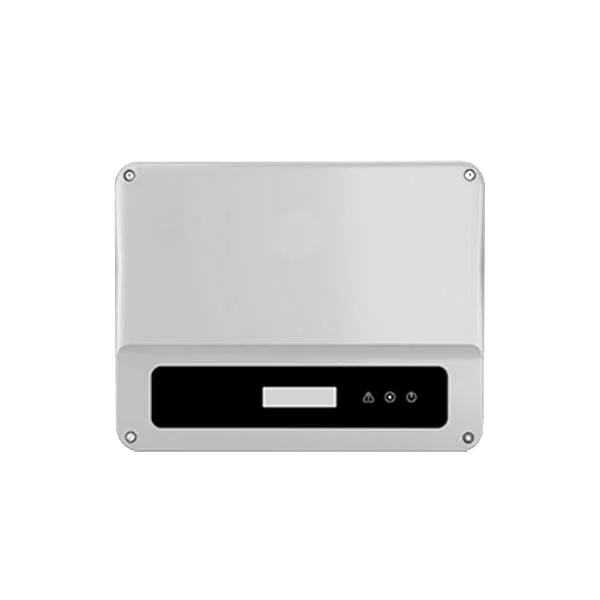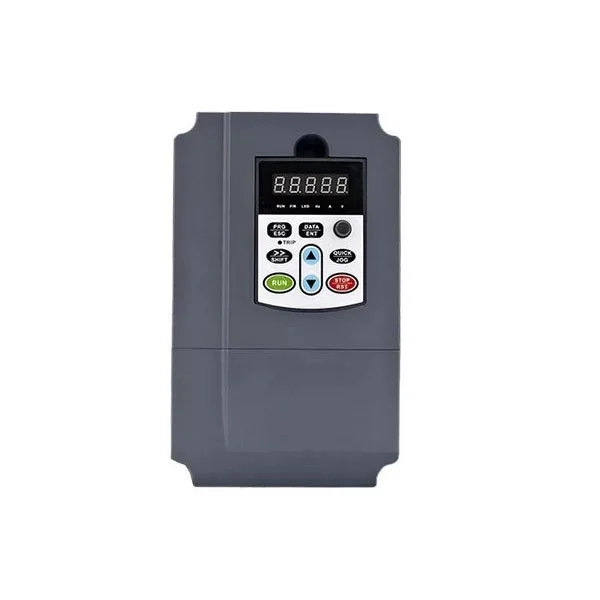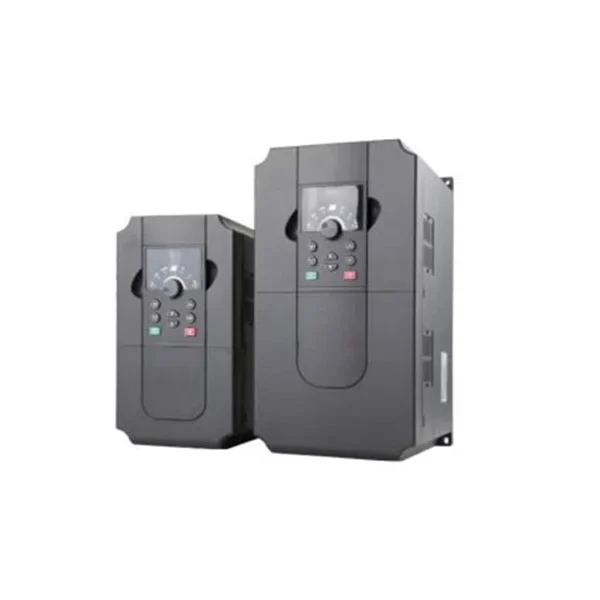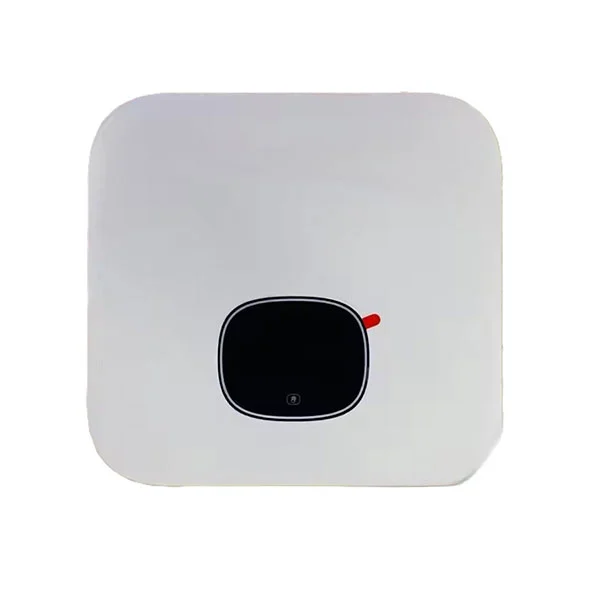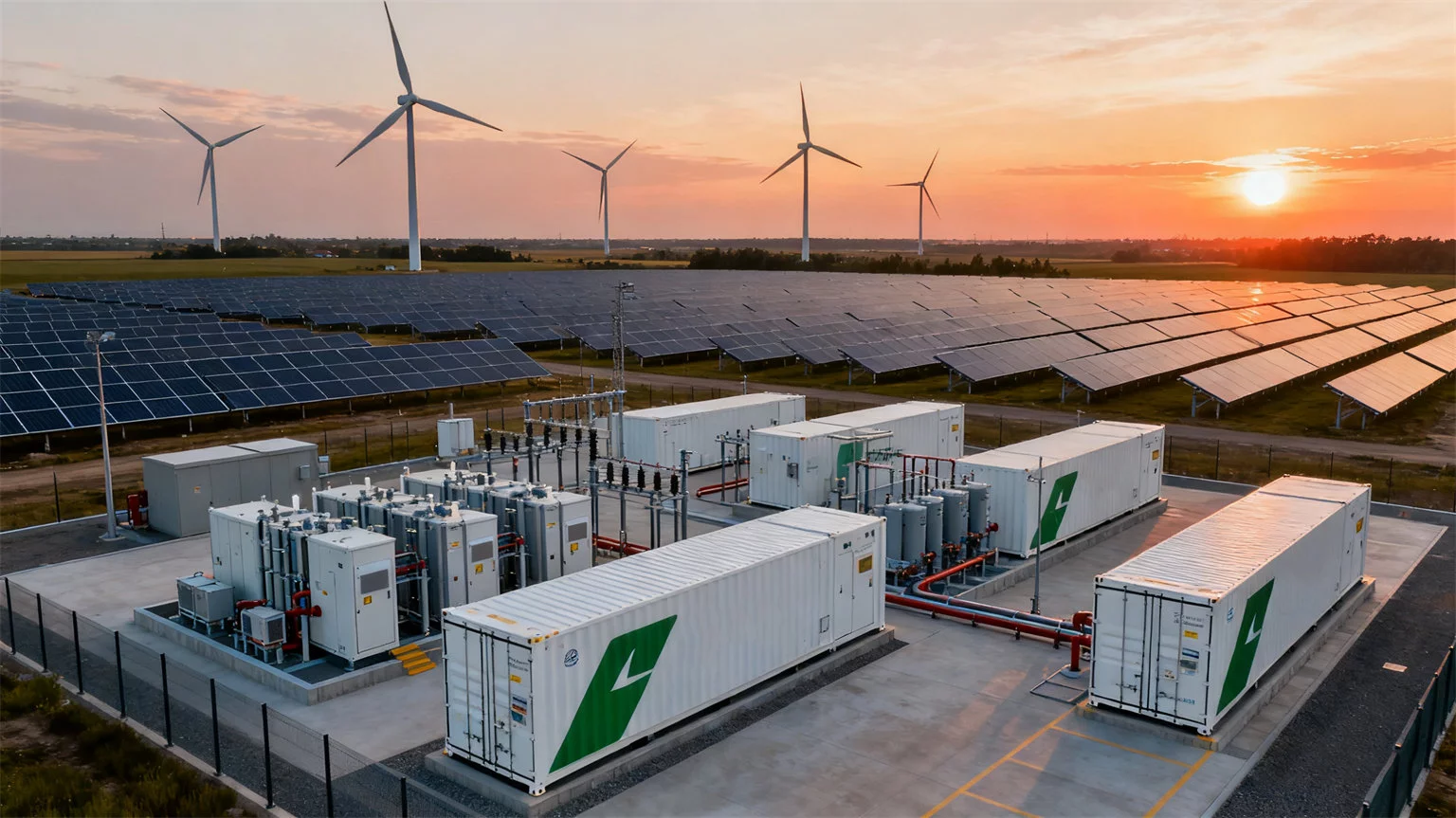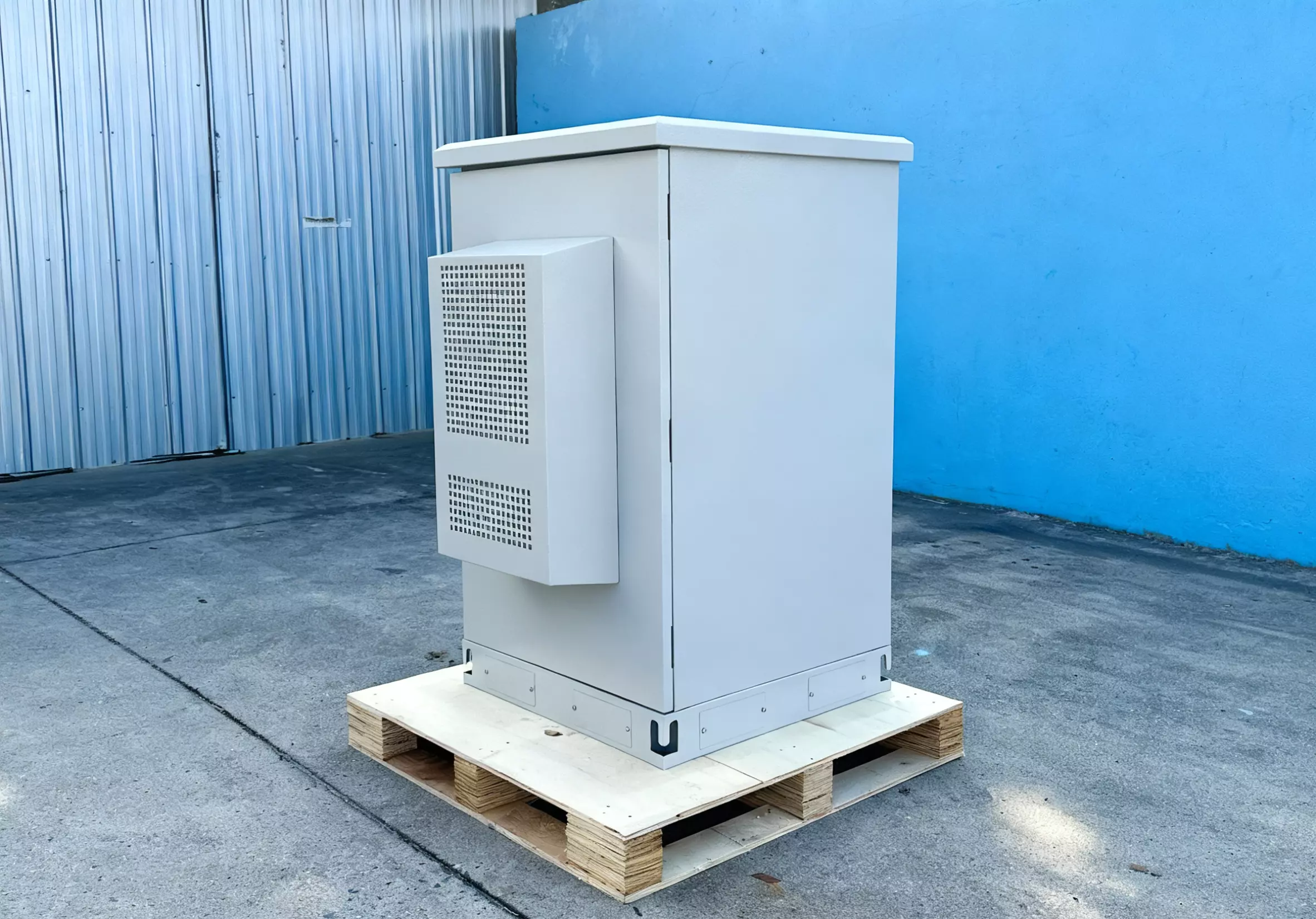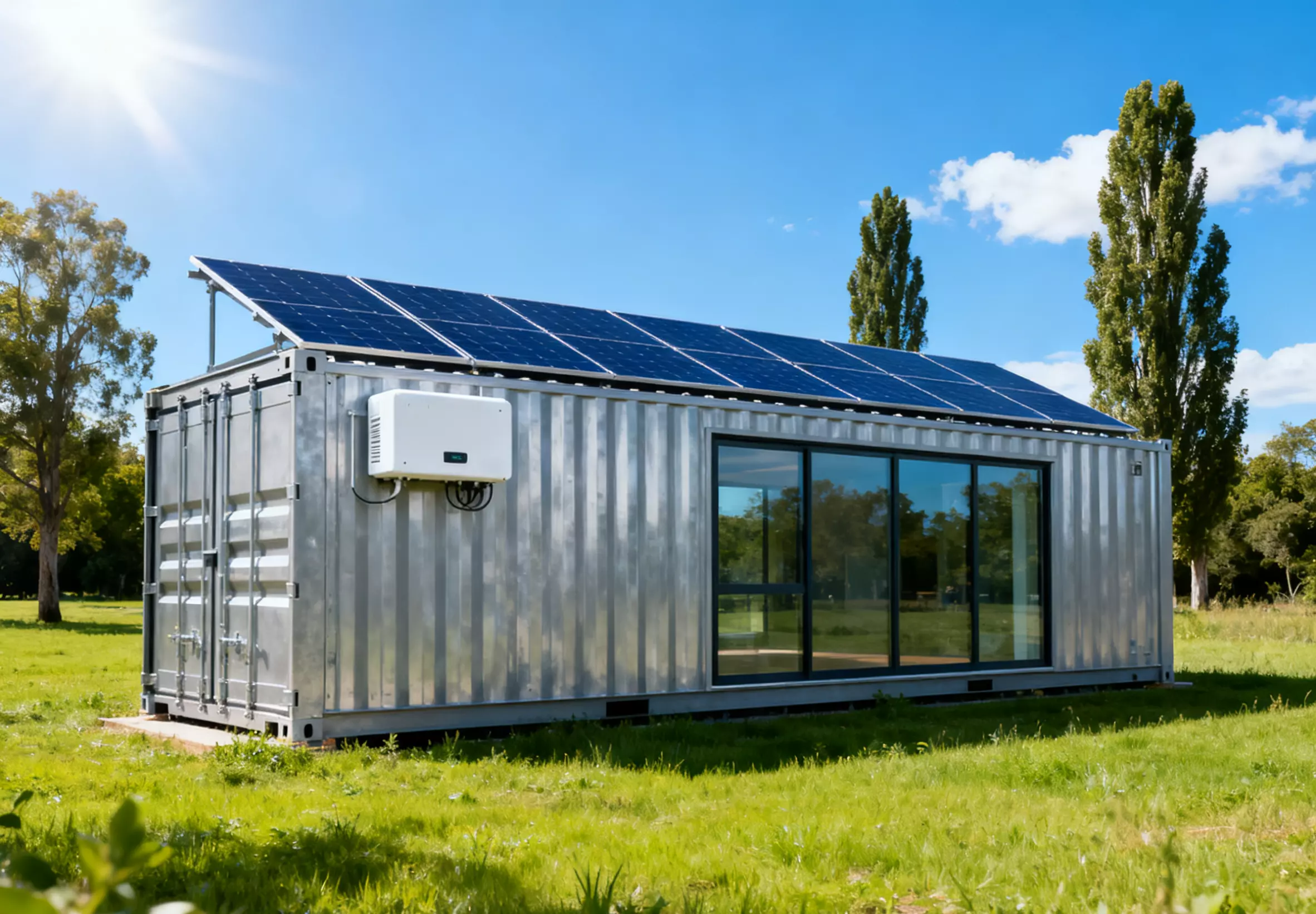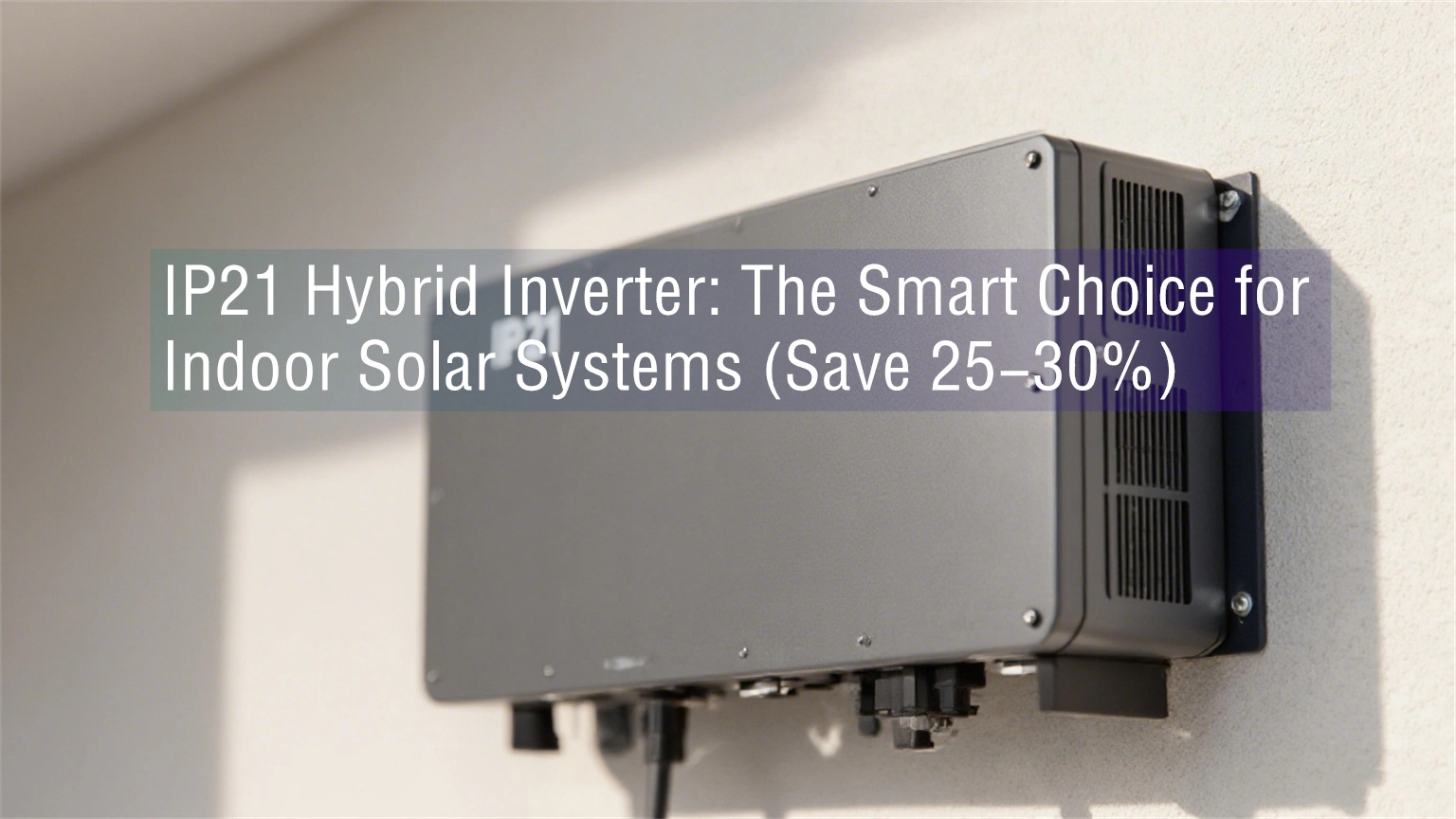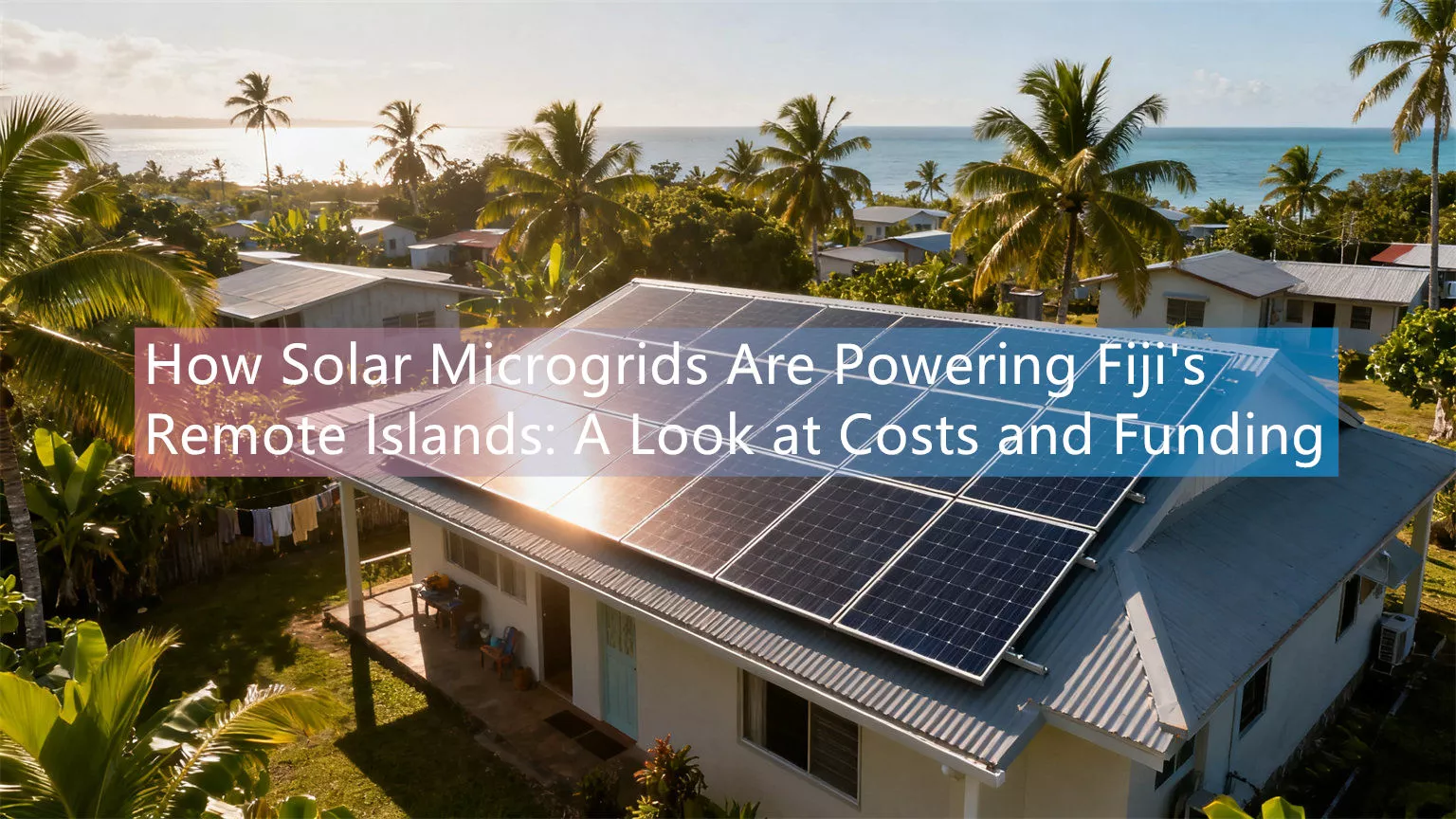What is a 1 kW solar system?
The 1 kW solar energy system is a small-sized solar power generation device. It can change sunlight into electric power, which can be utilized for some or all of the electricity needs in homes or small shops. The maximum output of electric power amounts to 1000 watts. Since the output is relatively small, it can be used for self-supporting power supplies in households, small areas, or areas without power grids.
What is included in a 1kW solar system?
The following are the main components of a 1kW solar energy system:
| Component | Description |
| Solar Panels | A 1KW solar system typically requires 3 to 4 solar panels, each with a rated power between 250W and 300W. |
| Inverter | Converts the direct current (DC) generated by the solar panels into alternating current (AC) for household use. |
| Mounting Structure | Used to secure the solar panels, ensuring they receive maximum sunlight. |
| Cables and Junction Boxes | Used to connect the solar panels to the inverter, ensuring the transmission of electrical energy. |
| Installation Tools and Accessories | Includes screws, brackets, sealants, etc., for the installation and fixation of the system. |
Average price of 1 kW solar system in Pakistan
In Pakistan, installing a 1 kW solar system is usually relatively affordable, costing roughly between Rs. 150,000 and Rs. 200,000 dollars. However, the actual price will vary depending on a number of factors, such as the brand and type of PV panels, the type of inverter, and whether or not the system is equipped with batteries or on an installment basis.
What can I run on a 1 kW solar system?
A 1kW solar system is good for small homes or users with low electricity needs. It can run some low - power appliances. Here is a table. It shows common appliances a 1kW solar system can power. It also shows their power consumption and daily operating hours:
| No. | Appliance | Power Consumption (Watts) | Daily Operating Time (Hours) | Daily Energy Consumption (kWh) |
| 1 | LED Bulbs | 11 | 4 | 0.044 |
| 2 | Electric Fan | 35 | 4 | 0.14 |
| 3 | Low-Power Radio | 3 | 4 | 0.012 |
| 4 | Laptop | 60 | 2 | 0.12 |
| 5 | Small TV | 50 | 2 | 0.10 |
How many solar panels do you need for a 1 kW solar system?
Here's how many are needed based on different wattages:
| Panel Wattage | Number of Panels Needed |
| 250W | 4 panels |
| 300W | 4 panels |
| 330W | 3 panels |
| 350W | 3 panels |
| 400W | 3 panels |
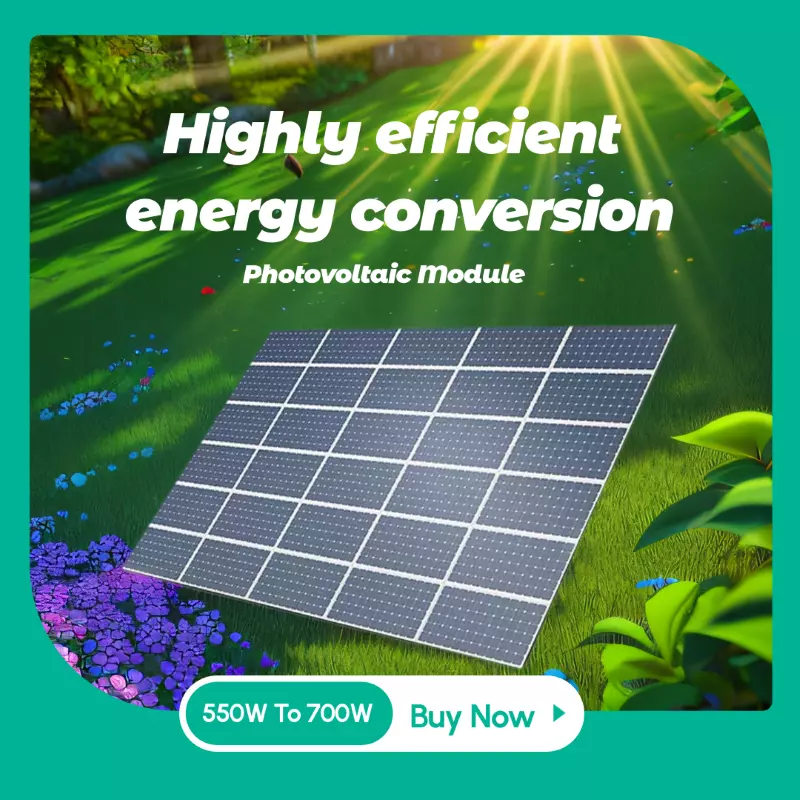
Get Huijue Solar Panel
Here you can see Huijue's various solar panels.Tell us what you need and we'll customize it for you!
Explanation
250W Panels: 4 panels are needed because 1000÷250=4.
300W Panels: 4 panels are needed because 1000÷300≈3.33, rounded up to 4 panels.
330W Panels: 3 panels are needed because 1000÷330≈3.03, rounded up to 3 panels.
350W Panels: 3 panels are needed because 1000÷350≈2.86, rounded up to 3 panels.
400W Panels: 3 panels are needed because 1000÷400=2.5, rounded up to 3 panels.
Factors affecting the cost of a 1 kW solar system
The cost of a 1 kW solar system is affected by a number of factors, here are some of the key ones:
1. Solar panel cost
Types and Efficiencies of Solar Panels
There are a few varieties of solar panels: the most effective ones are the monocrystalline panels, but they are also the most expensive. If your budget is small, you might want to try either polycrystalline panels or thin-film panels.
Brand and Quality
Solar panels from big brands are around 20% costlier than those from ordinary brands. However, their product quality is more reliable. If your budget permits, choosing a well - known brand is a better choice.
2. Inverter Cost
Function and Efficiency
The more efficient an inverter is, the higher its price usually is. But simultaneously, the overall system efficiency is also greater.
Monitoring Function
An inverter with an internet connection and a monitoring function will cost more.
3. Installation Costs
Labor Cost
Installing solar energy systems needs professional workers. So, labor cost is a crucial part.
Equipment Cost
It includes items like brackets, cables, and junction boxes. These costs change according to the installation complexity and the quality of materials used.
4. Monitoring System Costs
Performance monitoring: installing a monitoring system can help users know the operation status of the system in real time, but it will add extra costs.
5. Maintenance and repair costs
Long-term maintenance: High-quality components and materials can reduce the cost of long-term maintenance and repairs.
Which solar system is best suited for homes in Pakistan?
| Monthly Electricity Consumption (kWh) | System Capacity | Suitable Scenario | Description |
| 100-200 | 1kW Solar System | Small homes or auxiliary power needs | Ideal for low-power households, such as single apartments or small residences. It's cost-effective and environmentally friendly, suitable for those with a limited budget. |
| 500-600 | 5kW Solar System | Medium-power-consuming homes | Considering Pakistan's excellent sunlight conditions, a 5kW system can meet most daily electricity needs. |
| 600-800 | 7kW Solar System | Homes with slightly higher electricity consumption | The 7kW system can provide more power support, especially during the hot summer months. |
| 800-1000 | 10kW Solar System | High-power-consuming homes or commercial use | A 10kW system is suitable for scenarios with higher electricity demands, such as large households or commercial premises. |
Comparison: 1 kW vs. other solar systems
Below is a detailed comparison of 1 kW solar systems with other common solar systems to help you better understand the scenarios, advantages and disadvantages of different systems.
1 kW Solar System
Scenarios: small homes, small apartments or auxiliary power needs.
Advantages:
Low cost: low initial investment, suitable for users with limited budget.
Environmentally friendly: Reduces carbon emissions and is in line with the green energy concept.
Disadvantages:
Limited power: only meets the needs of low-power appliances, such as LED lights, laptops, small TVs, etc.
Grid-dependent: Grid-connected systems are unable to supply power in the event of a grid failure.
3 Kilowatt Solar System
Scenario: medium-sized homes or small commercial premises.
Advantages:
Higher power output: suitable for daily household power needs, such as refrigerators, washing machines, etc.
High flexibility: highly scalable and can be upgraded in the future to meet higher electricity demand.
Disadvantages:
Higher initial investment: requires more capital investment, but can save more on electricity bills in the long run.
5 kW Solar System
Scenario: large homes or medium-sized commercial premises.
Pros:
High power output: able to meet most of the household's electricity needs, including high-power appliances such as air conditioners and water heaters.
Cost-effective: although the initial investment is higher, the cost per watt is relatively low, saving more on electricity bills in the long run.
Disadvantages:
High installation space requirement: requires a larger roof area to install more solar panels.
10 kW Solar System
Scenarios: large homes, commercial premises or small businesses.
Pros:
Extremely high power output: meets all the electricity needs of a large home or commercial premises.
Energy independence: can rely on the energy storage system for continuous power supply in case of grid instability or power outage.
Disadvantages:
High initial investment: requires a large capital investment and may have a long payback period.
Complicated installation: requires a specialized installation team and a large installation space.
Why choose a 1 kW solar system?
Low cost: 1 kW solar system has a relatively low initial investment, making it suitable for families with limited budgets.
Suitable for small homes: Takes up little space, suitable for small homes or homes with limited installation space.
Environmentally friendly: Reduces carbon emissions, in line with the green energy concept.
Saving electricity cost: Although the power is small, it can effectively reduce part of the electricity bill.
The choice of solar system depends upon your demand, budget, and space for installation. 1kW solar system is suitable for small home or auxiliary power demand, low cost, and environmental protection. If your demand is not big, the 1KW solar system is absolutely suitable for you; if you are a medium-sized family, with higher demand for power output and flexibility, 3KW solar system will be more suitable for you; 5kW and 10kW systems are suitable for large families or commercial premises. If you have a medium-sized home with high demand for power output and flexibility, then a 3kW solar system would suit your requirements more. The 5kW and 10kW systems are ideal for bigger homes or commercial premises, offering higher power output and energy independence.
No matter what size of solar system you require, come forward to us for more information about our solar solutions, and we will try to delight you. Contact us now!

